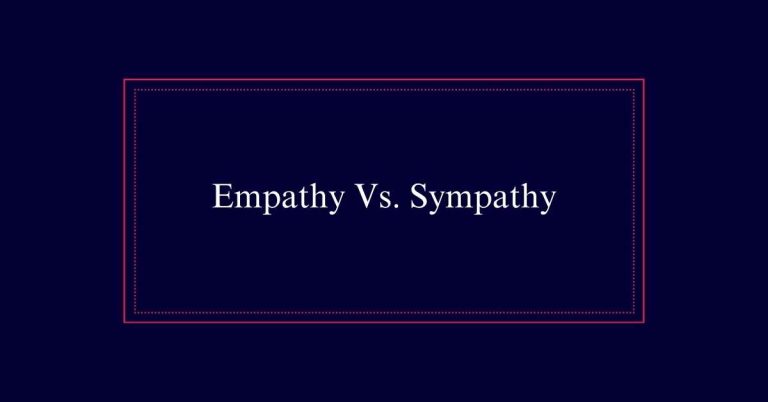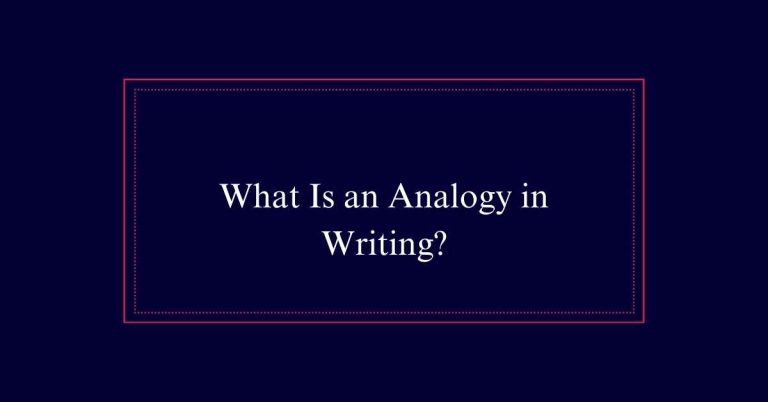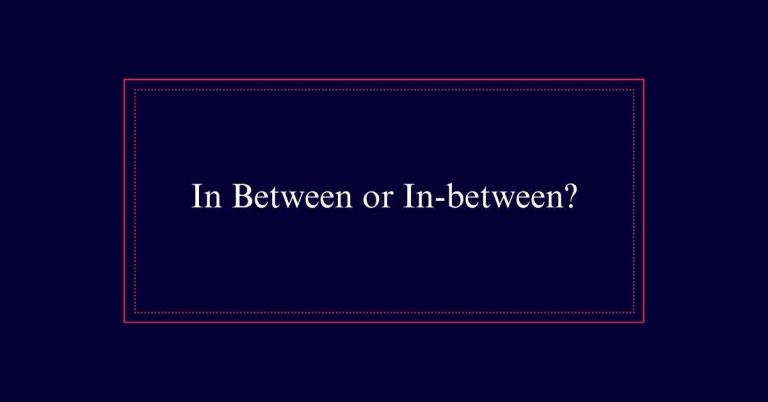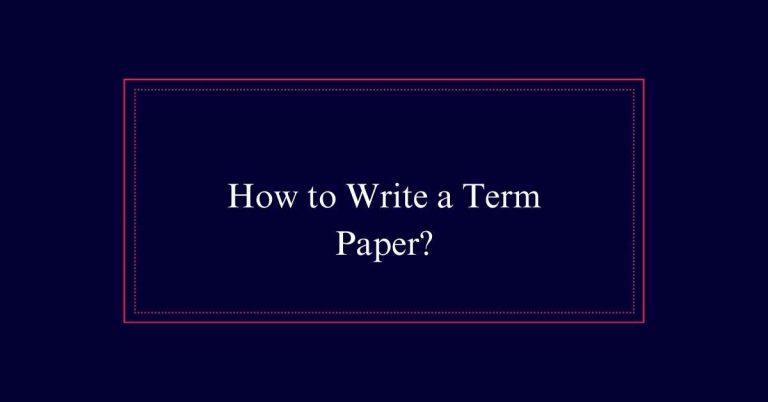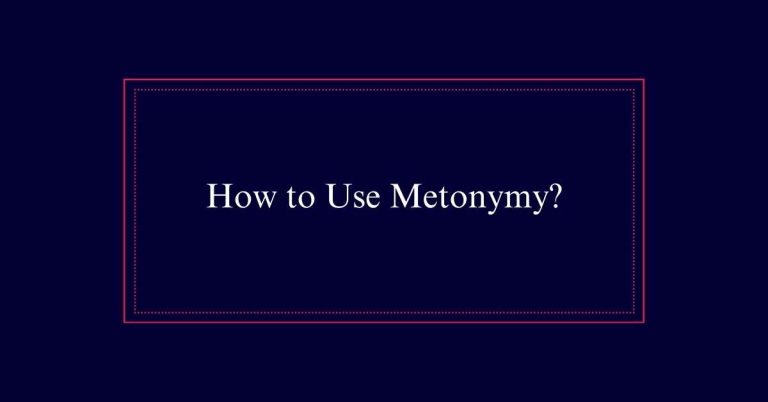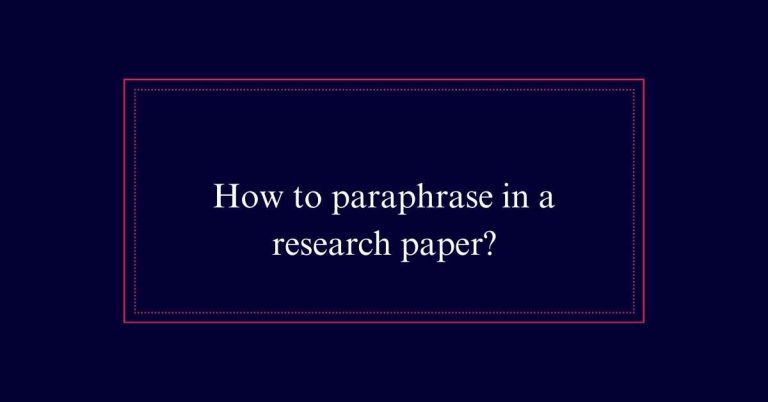Moot Point: Definition and Examples
A moot point is a topic that is debatable but lacks practical relevance or significance. In discussions, it often indicates issues that are interesting in theory but have no real impact. For example, arguing whether the sky should be green is a moot point since it does not change reality.
In legal contexts, a moot point refers to cases that no longer require resolution, as they have become irrelevant.
Meaning and Usage
A moot point is a topic that is open to debate but lacks practical significance. It can function as an adjective, noun, or verb.
As an adjective, it describes a situation that is debatable but holds no real value.
When used as a noun, it refers to a question that is either debatable or irrelevant.
As a verb, it means to render something irrelevant to practical purposes.
The phrase ‘moot point’ is best applied to discussions or topics that have no clear resolution or are not relevant to the current conversation.
Adjective Usage
Describing something as moot signifies it is debatable but lacks practical importance. As an adjective, ‘moot’ is used to highlight issues or points that, while potentially interesting or thought-provoking, do not have a real impact on the current situation.
For example, discussing potential job roles in a company that is closing down would be a moot conversation. This usage helps direct attention away from irrelevant details and focuses on what truly matters.
In legal contexts, moot can describe cases no longer requiring resolution because circumstances have changed.
Noun Usage
In noun form, ‘moot point’ refers to a question that is debatable but ultimately irrelevant. It signifies an issue that, while open to discussion, has no practical significance or impact on the current situation. This usage is common in both everyday language and professional settings, particularly in legal and academic contexts.
Consider the following points:
- A moot point is often brought up in debates but does not affect the outcome.
- It can highlight the difference between theoretical and practical concerns.
- The term helps to dismiss irrelevant issues in a discussion.
- It is useful for focusing on what truly matters in decision-making.
- Recognizing moot points can streamline conversations and improve efficiency.
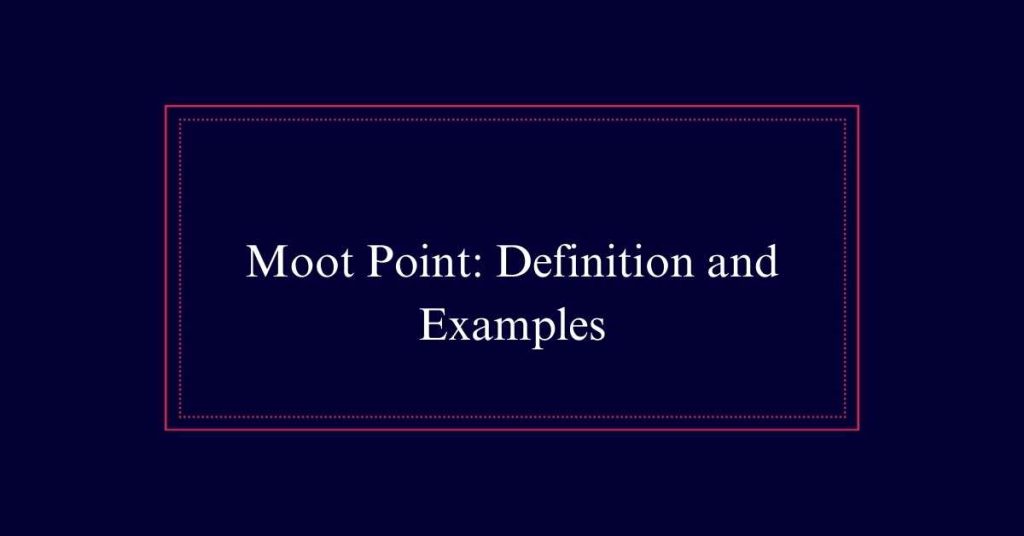
Verb Usage
Using ‘moot’ as a verb means to render a topic irrelevant or without practical significance. When a subject is mooted, it implies that further discussion or debate on the matter is unnecessary. For instance, if a decision has already been made, any argument against it becomes moot. This usage emphasizes the pointlessness of continuing the discussion.
In professional settings, mooting an issue can streamline meetings by focusing on actionable topics. The act of mooting also underscores the finality of a decision, signaling that no more input is needed.
Legal Origins
The concept of a moot point has its roots in legal history, where it originally referred to hypothetical cases used for training law students. These exercises allowed students to discuss and debate theoretical legal scenarios, develop critical thinking, and argumentation skills, understand complex legal principles in a controlled environment, simulate real court proceedings without real-world consequences, and prepare for actual litigation by honing their advocacy abilities.
Over time, these hypothetical debates in moot courts became synonymous with discussions that had no practical effect on real-life decisions. This historical context underscores how a moot point involves topics open to debate but lacking in real-world impact, providing a foundation for its modern usage in everyday language.
Historical Evolution
Over centuries, ‘moot point’ evolved from a legal term to a phrase describing irrelevant or debatable topics in everyday conversation. Initially, it was used in legal settings to discuss hypothetical cases. By the 1500s, it became part of academic exercises in law schools, where students debated mock cases. This practice laid the foundation for the term’s broader application.
| Time Period | Usage Context | Description |
|---|---|---|
| 1500s | Legal Exercises | Discussing hypothetical legal cases. |
| 1800s | Academic Institutions | Debating in moot courts. |
| Modern Day | Everyday Conversation | Signifying irrelevant or debatable points. |
Moot Court Practice
In legal education, moot court practice involves students arguing hypothetical cases to develop their advocacy skills. This exercise is vital for budding lawyers, providing a realistic simulation of court proceedings. Students research legal issues, draft briefs, and present oral arguments before a panel of judges. This practice enhances their understanding of legal principles and court decorum.
Key aspects of moot court practice include:
- Research Skills: Students must thoroughly investigate case law and statutes.
- Writing Skills: Crafting persuasive briefs is a fundamental part of the process.
- Oral Advocacy: Effective public speaking and argumentation are essential.
- Teamwork: Collaboration with peers is often required.
- Feedback: Receiving critiques from judges helps improve performance.
Common Mispronunciations
Common mispronunciations often lead to confusion and miscommunication in everyday language. One prevalent error is the mispronunciation of ‘moot point’ as ‘mute point.’ This mistake stems from their similar sounds but distinct meanings.
‘Moot’ rhymes with ‘boot’ and refers to something debatable yet irrelevant. Conversely, ‘mute,’ which rhymes with ‘cute,’ signifies silence or the absence of sound. Mispronouncing ‘moot’ as ‘mute’ can change the intended meaning, leading to misunderstandings.
Being aware of these differences helps maintain clear communication. Correct pronunciation is essential for conveying ideas accurately, especially in professional and academic contexts.
Moot Vs. Mute
Understanding the distinction between ‘moot’ and ‘mute’ is important to prevent common mispronunciation errors. While the words sound somewhat similar, their meanings and uses are distinct.
‘Moot’ refers to something debatable but without practical significance, whereas ‘mute’ means silent or unable to speak. Confusion between these terms is frequent, but clarity is essential for effective communication.
- ‘Moot’ rhymes with ‘boot,’ while ‘mute’ rhymes with ‘cute.’
- ‘Moot point’ is the correct phrase, meaning an irrelevant or debatable issue.
- ‘Mute’ implies silence or the absence of sound.
- Misusing ‘mute’ in place of ‘moot’ can lead to misunderstanding.
Sentence Examples
Providing sentence examples helps illustrate the proper usage of the term ‘moot point’ in various contexts.
For instance, a teacher told Michael he had qualities of a great teacher, but it was moot since he was enrolled in nursing school.
Similarly, my opinion on the matter is moot since you’ve made up your mind.
Discussing Sasha’s addition to the June project is moot as she’s on maternity leave.
Another example is, not wanting to go on a boat ride is moot since the dock has been left.

